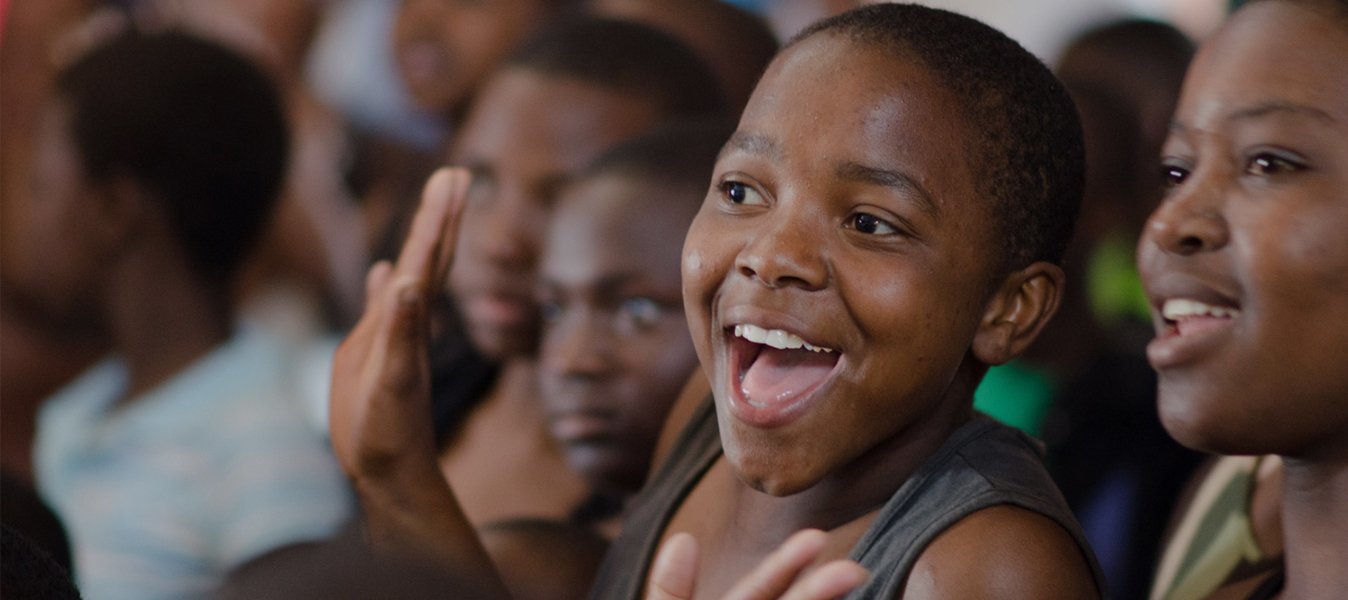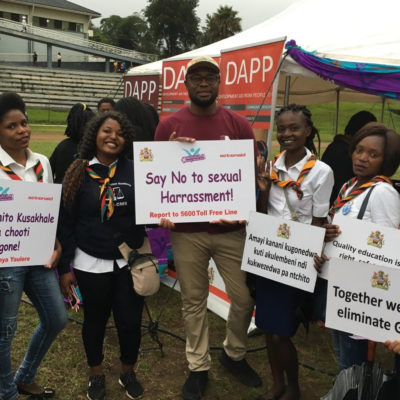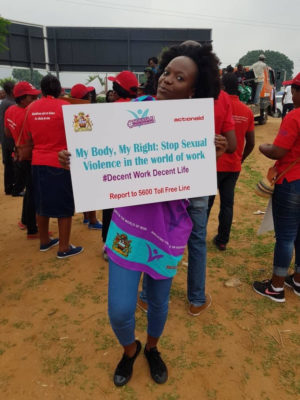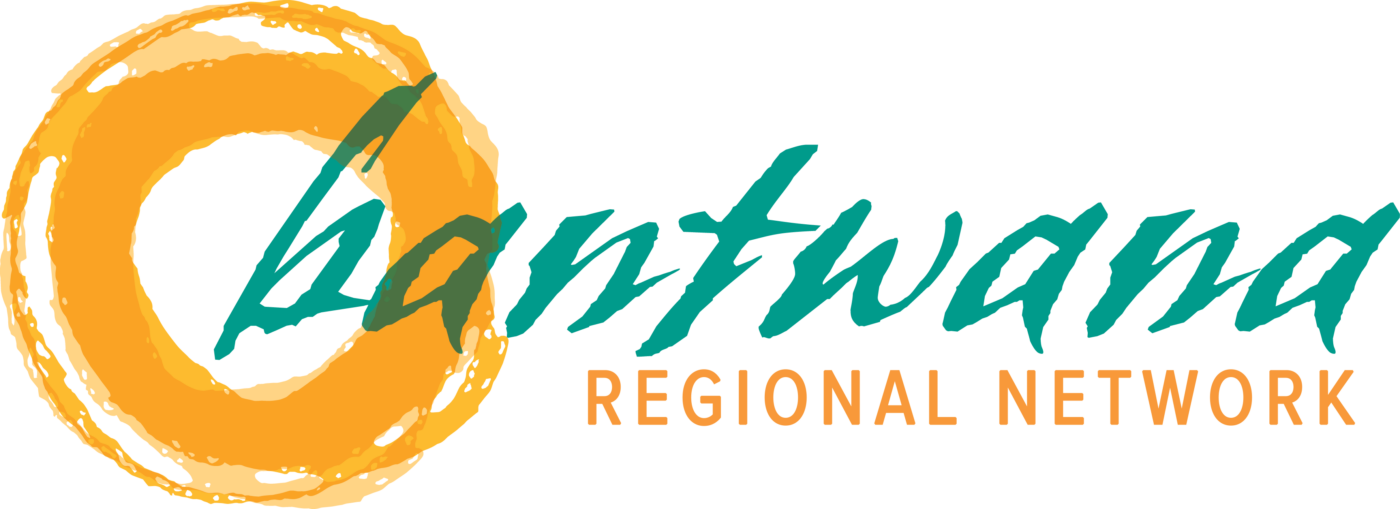
Bantwana Participates in 16 Days of Activism Launch in Malawi
Our team in Malawi joined our partner, EngenderHealth, at the 16 Days of Activism campaign in Blantyre over the weekend. The event was launched by UNWomen, Action Aid, and the Malawi Ministry of Gender. Our Team Lead, Mbonisi Tshuma, and our Safe Schools Specialist, Lusungu Kalanga, were amongst the hundreds of development workers promoting the importance of preventing gender-based violence (GBV). Malawi has made on their own theme for the campaign of “preventing GBV in the workplace and tertiary institutions”. The Minister of Gender, Children, Disability and Social Welfare, Cecilia Chazama, was very vocal at the event in promoting the importance of keeping children safe from violence in schools.

“While we continue lobbying for women’s and gender equality rights in Malawi, it is important that every girl child and other vulnerable students complete their education. Education will allow young girls to be independent while at the same time make them to fully understand women’s rights and be able to voice out once subjected to abuse,” Chazama explained.
The Minister’s emphasis on preventing GBV in schools aligns well with our program in Malawi. While it is a fairly new, our Essential Gender-Based Violence Services and Prevention Program has already seen many successes. At the community level, our team members and our program partners have successfully mobilized and trained 78 community leaders and sensitized them on SRGBV prevention and response mechanism. These community leaders included traditional leaders, Child Protection Workers, school management committee chairpersons, head teachers, Mother-Group chairpersons, and Parent-Teacher-Association chairpersons. Participants discussed the responsibilities of community structures in ending SRGBV and their roles in strengthening coordination and collaboration among school structures and other stakeholders, such as Child Protection Workers.

At the school level, we are implementing Protect Our Youth (POY) Clubs, which are designed to improve girl’s (and boy’s) self-esteem and sense of self-worth, as well as their knowledge of the manifestations of SRGBV, and equip them with the life skills to respond to and report abuses. We train Peer Leaders and Matron and Patron’s from each school to facilitate the clubs. We currently have 1,935 secondary students (1,260 female and 675 male) actively engaged in POY Clubs.
As a part of efforts to equip teachers and school support structures with knowledge, skills, and tools to prevent and respond to SRGBV, we have started conducting teacher-trainings for all teachers in the 43 Community Day Secondary Schools (CDSSs) that we support through the program. So far, 372 teachers have been trained in positive discipline and gender responsive teaching practices. The trainings focused on building teachers’ capacity on their roles as protectors of students (particularly girls), and for the promotion of gender equitable teaching practices. At the end of the trainings, the teachers developed action plans on how they would create safe environments within each of their schools and how they would act as agents of change on social and cultural norms that predispose children to gender-based violence.
We are also are working on revitalizing Mother Groups at CDSSs to connect the community’s involvement in school structures. Mother Groups are responsible for shifting harmful norms in schools and creating supportive school environments where students, particularly adolescent girls, can thrive. The Mother-Group structure is however not well pronounced in CDSSs. Several schools lack these structures and where they exist, they might not be functional. In October, we trained 130 mother group members for the 13 CDSS they support. Their trainings focused on the roles and responsibilities of Mother Groups, the Mother Group Code of Conduct, resource mobilization strategies, counseling approaches for vulnerable children, gender and gender-based violence, HIV and AIDS, human development and relationships, child-friendly Schools, and reporting and referrals for GBV cases. Following these trainings some Mother Groups immediately started implementing their action plans. Mother Group conducted three sensitization meetings on SRGBV with various community stakeholders – one meeting with teachers on how to strengthen girls’ safety within their school, another one with 204 schoolboys on positive masculinity, and the third with 118 schoolgirls on identifying and reporting GBV.
